
Find Help
More Items From Ergsy search
-

Are there any natural predators of screw worms?
Relevance: 100%
-
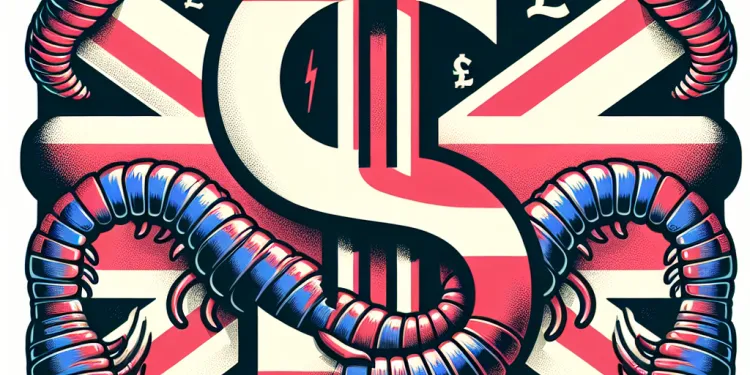
What are Screw Worms parasites?
Relevance: 60%
-
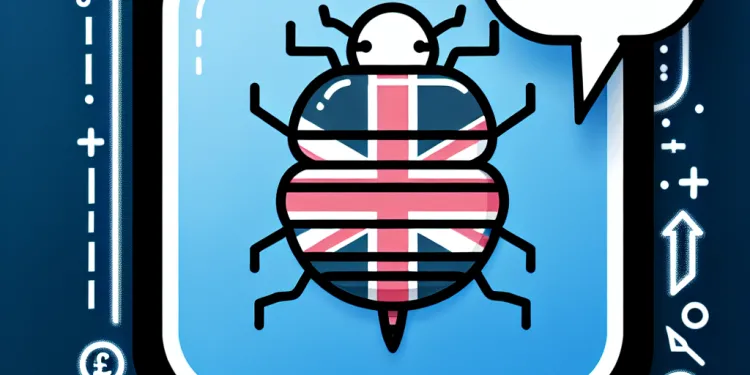
Can screw worm infestations be prevented?
Relevance: 60%
-
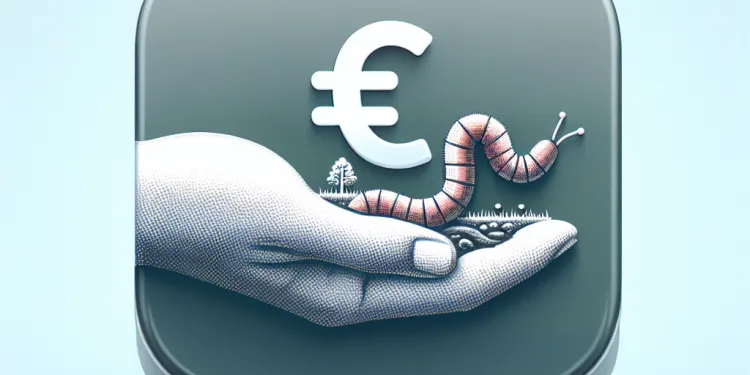
What methods are used to control screw worm populations?
Relevance: 60%
-
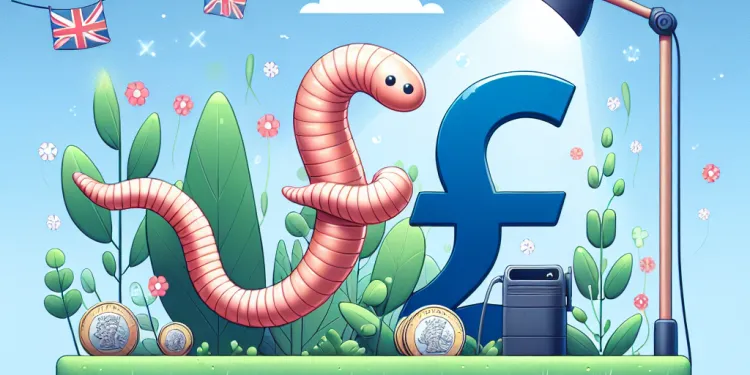
How do screw worms reproduce?
Relevance: 57%
-

Are screw worms dangerous to humans?
Relevance: 56%
-

How are screw worm infestations treated?
Relevance: 56%
-

Where are screw worms found geographically?
Relevance: 54%
-

How do screw worms infest their hosts?
Relevance: 54%
-

Has the screw worm been eradicated in some areas?
Relevance: 54%
-

What are the symptoms of a screw worm infestation?
Relevance: 53%
-
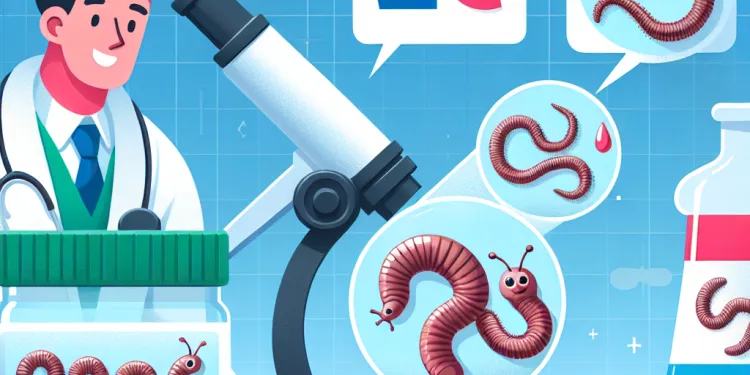
Can screw worms cause zoonotic disease?
Relevance: 53%
-
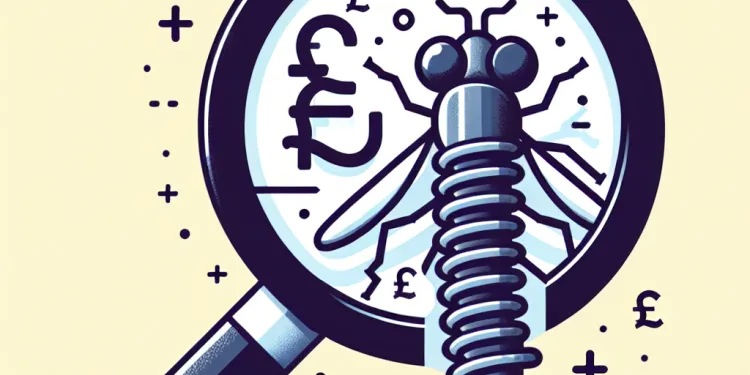
What species of flies produce screw worms?
Relevance: 53%
-
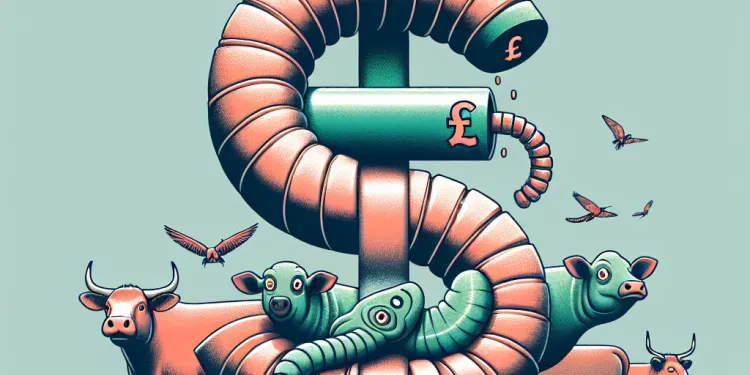
What impact do screw worms have on livestock?
Relevance: 52%
-
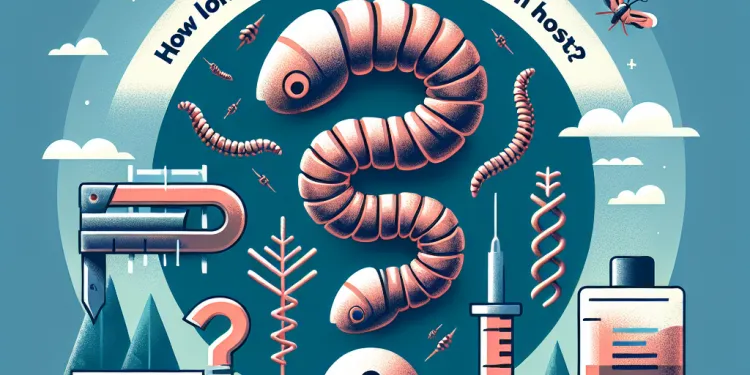
How long do screw worm larvae typically infest a host?
Relevance: 52%
-
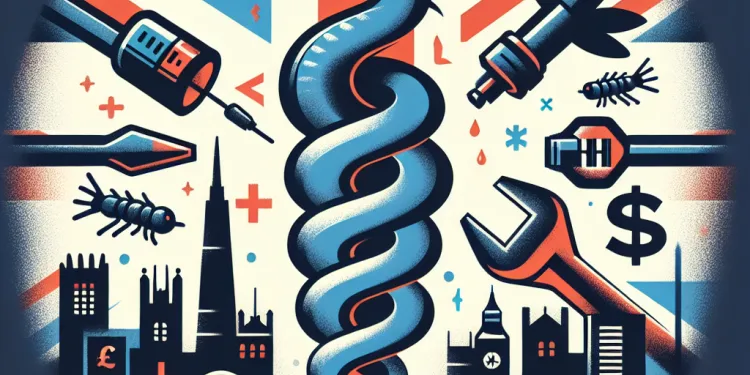
What measures are taken during a screw worm outbreak?
Relevance: 50%
-
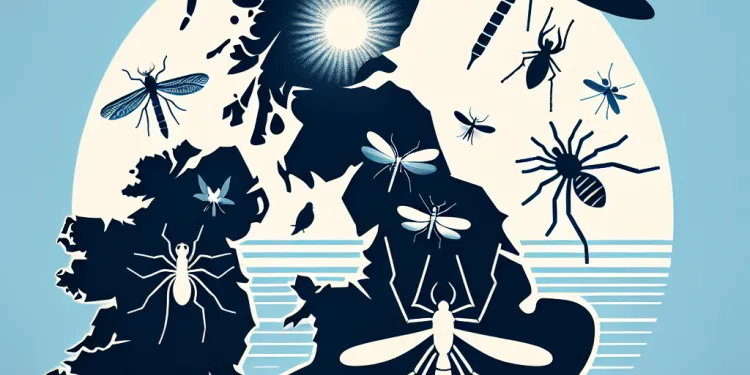
Are there any native mosquito predators in the UK?
Relevance: 36%
-
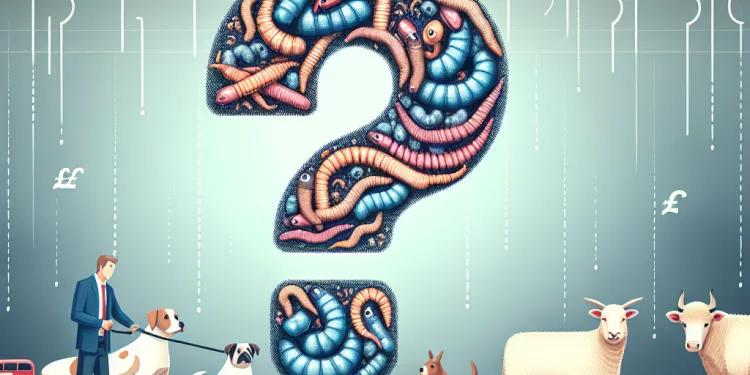
What animals can be affected by screw worms?
Relevance: 36%
-

What economic impact do screw worms have?
Relevance: 36%
-

How can individuals help in the fight against screw worms?
Relevance: 35%
-

Why is screw worm eradication important?
Relevance: 22%
-

Woodland and Natural Burials
Relevance: 19%
-

Do I need a coffin for a natural burial?
Relevance: 18%
-

Is embalming allowed in natural burials?
Relevance: 18%
-

Is GLP-1 naturally occurring?
Relevance: 18%
-

What is the difference between a woodland and natural burial?
Relevance: 17%
-
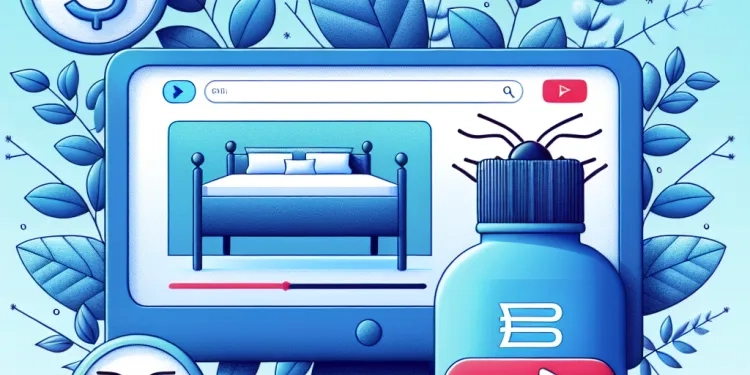
Are there any natural remedies for bed bugs?
Relevance: 17%
-

Is it possible to delay menopause naturally?
Relevance: 16%
-
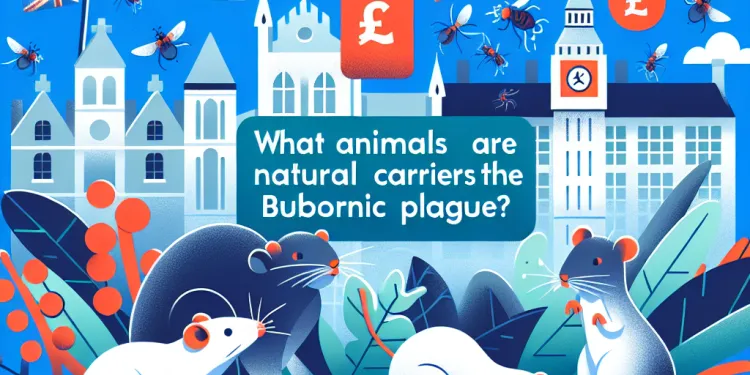
What animals are natural carriers of the bubonic plague?
Relevance: 16%
-

Are there natural remedies for menopause masking?
Relevance: 16%
-
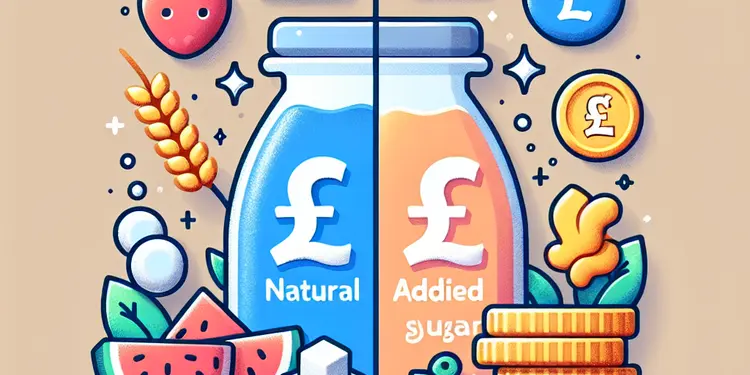
What is the difference between natural sugar and added sugar?
Relevance: 16%
-

Are there any natural appetite suppressants, and can they help with weight loss?
Relevance: 15%
-

Do sunbeds provide a safer way to tan compared to natural sunlight?
Relevance: 14%
-

Can natural changes alter property boundaries?
Relevance: 13%
-

Can I have a natural birth after a Caesarean section?
Relevance: 13%
-

Are there any natural supplements that can help prevent heart attacks?
Relevance: 11%
-

What animals are natural hosts of the Marburg virus?
Relevance: 10%
-

Is there government support for small businesses affected by natural disasters?
Relevance: 10%
-
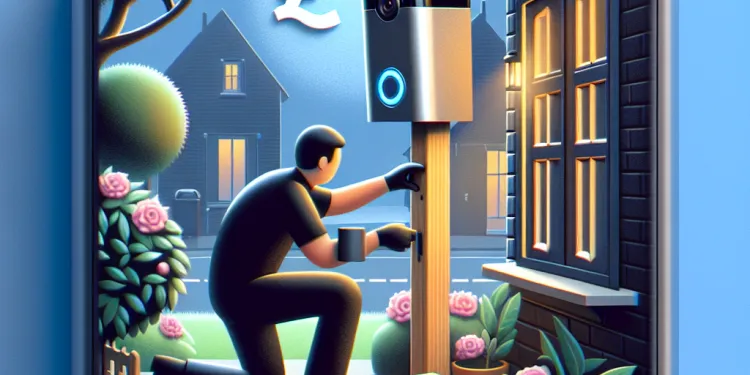
How do I install a Ring Doorbell Camera?
Relevance: 9%
-

Why might there be more spiders in the home during autumn?
Relevance: 8%
Introduction to Screw Worms
Screw worms are parasitic flies that belong to the family Calliphoridae. The larvae of these flies, commonly known as screw worm maggots, infest the living tissue of warm-blooded animals, causing significant damage to livestock and wildlife. Two notable species include the New World screw worm (Cochliomyia hominivorax) and the Old World screw worm (Chrysomya bezziana). They are primarily found in tropical and subtropical regions, causing considerable economic losses in affected areas.
Natural Predators of Screw Worms
Despite their destructive nature, screw worms do have natural predators within ecosystems that can help to control their populations. These predators play a vital role in natural pest management by maintaining biodiversity and reducing the dependency on chemical control methods.
Parasitic Wasps
One of the major natural predators of screw worms are parasitic wasps. These wasps, particularly species from the genus Spalangia and Nasonia, target the pupae of screw worms. The adult wasps lay their eggs inside the screw worm pupae. When the wasp larvae hatch, they consume the screw worm pupae from the inside, effectively reducing the number of adult flies that emerge. This natural predation method is considered beneficial because it targets the screw worm population before they mature and reproduce.
Birds
Certain bird species also play a role in controlling screw worm populations. Birds such as blackbirds, starlings, and sparrows feed on adult screw worms as well as their larvae. By preying on these insects, birds help reduce the number of adult screw worms, thus diminishing the overall population. While birds are generalist feeders and their impact is less targeted compared to parasitic wasps, they nonetheless contribute to natural pest regulation.
Other Insect Predators
In addition to parasitic wasps and birds, various predatory insects also help in naturally managing screw worm populations. For example, some beetles and ants are known to feed on screw worm larvae and eggs. These insects attack the eggs and larvae on the ground before they can cause harm to livestock or develop into mature flies. By limiting the number of larvae that reach maturity, these insect predators are crucial in maintaining ecological balance.
Conclusion
While screw worms are notorious for their devastating effects on livestock, their populations are naturally regulated by various predators. Parasitic wasps, birds, and predatory insects all play a role in biological pest control. Understanding and encouraging these natural predator-prey relationships can assist in sustainable agriculture and wildlife management, reducing the need for chemical interventions and promoting biodiversity.
Introduction to Screw Worms
Screw worms are flies that can harm animals. These flies are from a group called Calliphoridae. The baby flies, called maggots, eat the flesh of warm-blooded animals. This can hurt farm animals and wildlife a lot. There are two main types of screw worms: New World screw worm and Old World screw worm. They live in warm places like tropical and subtropical areas, and they cause big money losses for farmers.
Natural Predators of Screw Worms
Even though screw worms can be harmful, there are other animals that eat them. These animals help keep the number of screw worms down without using chemicals. This is good for nature and helps keep the environment healthy.
Parasitic Wasps
Parasitic wasps are important natural enemies of screw worms. Some wasps, like those from the Spalangia and Nasonia groups, attack screw worm pupae. The wasps lay their eggs inside the pupae. When the wasp babies hatch, they eat the screw worm pupae. This means fewer adult screw worms can grow and cause problems. Parasitic wasps help control the screw worm population naturally.
Birds
Some birds also help control screw worms. Birds like blackbirds, starlings, and sparrows eat screw worms and their maggots. By eating them, birds help reduce the number of screw worms. Birds are not as focused as wasps, but they still help keep screw worm numbers low.
Other Insect Predators
Other insects also help manage screw worms. Some beetles and ants eat screw worm larvae and eggs. They attack these before they become adults, stopping them from harming animals. These insects play a key role in keeping things balanced in nature.
Conclusion
Screw worms can be very harmful to animals. However, many natural predators like wasps, birds, and other insects help keep their numbers down. By understanding these helpful creatures, we can use less chemicals and support natural ways to control pests. This helps farms and wildlife stay healthy.
Frequently Asked Questions
What are screw worms?
Screw worms are parasitic fly larvae that infest warm-blooded animals, including humans, causing myiasis.
Are there any natural predators of screw worms?
Yes, there are several natural predators that help control screw worm populations, including certain bird species, predatory beetles, and parasitoid wasps.
How do birds help control screw worm populations?
Birds can help control screw worm populations by preying on both adult flies and larvae, reducing their numbers.
What role do predatory beetles play in screw worm control?
Predatory beetles feed on the larvae of screw worms, helping to reduce infestations in the environment.
What are parasitoid wasps and how do they control screw worms?
Parasitoid wasps lay their eggs on or in the larvae of screw worms, and the developing wasp larvae consume the host larvae, helping to control screw worm populations.
Can natural predators completely eradicate screw worms?
No, natural predators alone cannot eradicate screw worms, but they can help to maintain their populations at lower levels.
What other methods are used to control screw worm populations?
In addition to natural predation, control methods include the release of sterile male flies, chemical treatments, and management practices to reduce host exposure.
How effective is the sterile insect technique in controlling screw worms?
The sterile insect technique has been highly effective in controlling screw worm populations, particularly in eradication programs that have led to the successful eradication of screw worms in several regions.
Are there any chemical treatments available to control screw worms?
Yes, there are insecticides that can be used to treat infestations of screw worms, but they must be used judiciously to avoid environmental impact.
Do screw worms have any impact on human health?
Yes, screw worms can infest humans, causing painful lesions and requiring medical treatment to remove the larvae.
What environments do screw worms thrive in?
Screw worms thrive in warm and humid environments where there are ample hosts for their larvae.
How do screw worms affect livestock and wildlife?
Screw worms can cause significant harm to livestock and wildlife by infesting wounds, resulting in severe tissue damage and potentially death if untreated.
Can domestic animals be affected by screw worms?
Yes, domestic animals such as dogs and cats can be affected by screw worms, especially if they have open wounds.
What preventive measures can be taken to protect animals from screw worms?
Preventive measures include keeping wounds clean, using insect repellents, and implementing good herd management practices.
What is the life cycle of a screw worm fly?
The life cycle of a screw worm fly includes the egg, larval, pupal, and adult stages, with the larval stage being parasitic.
How can screw worms be identified?
Screw worms can be identified by their distinctive larvae, which have pigmented tracheal trunks and a characteristic spiracle pattern.
Are screw worms a global problem?
Screw worm infestations are primarily a problem in warm and tropical regions, but they have been eradicated from some areas through control programs.
What are the signs of a screw worm infestation in animals?
Signs of infestation include open wounds with larvae, discomfort, restlessness, and sometimes a foul odor emanating from infested areas.
What are the economic impacts of screw worm infestations?
Screw worm infestations can have significant economic impacts on agriculture and livestock sectors due to animal loss and increased costs for control and treatment.
How has the eradication of screw worms benefited regions?
The eradication of screw worms has benefited regions by improving animal health, reducing economic losses, and enhancing biosecurity and trade opportunities.
What are screw worms?
Screw worms are a type of bug. They are the baby stage of a fly. These baby flies look like worms.
Screw worms can make animals sick. They go inside a cut or wound on the animal. They hurt the animal and make it feel bad.
If you want to learn more, you can look at pictures or videos of screw worms. You can also use a tool that reads words out loud to help you understand.
Screw worms are baby flies that can make animals, including people, sick. They live inside warm-blooded animals and cause a problem called myiasis.
What animals hunt screw worms?
Yes, there are some animals that eat screw worms and help keep their numbers small. These include some kinds of birds, beetles that eat other bugs, and special wasps that lay their eggs inside the screw worms.
How do birds help control screw worms?
Birds help get rid of screw worms by eating the flies and their babies. This makes the number of screw worms go down.
How do predatory beetles help control screw worms?
Predatory beetles eat screw worms. This helps to keep the number of screw worms low.
If you need help to understand, you can:
- Use pictures to see how beetles eat screw worms.
- Ask someone to read it with you.
- Use a magnifier to make words bigger.
Some beetles eat baby screw worms. This helps keep the number of screw worms low.
What Are Parasitoid Wasps and How Do They Help With Screw Worms?
A parasitoid wasp is a special kind of wasp. It helps farmers and people by controlling bad bugs.
Screw worms are bad bugs that hurt animals. They live in the skin of cows and sheep.
Parasitoid wasps help control screw worms. They lay their eggs on screw worms. When the wasp eggs hatch, the baby wasps eat the screw worms. This makes the number of screw worms go down.
Using pictures or videos can help understand how these wasps work. Talking to someone or using voice tools can also help explain things clearly.
Parasitoid wasps are special bugs. They lay their eggs on or inside baby screw worms. The baby wasps then eat the screw worms. This helps keep the number of screw worms down.
Can animals that eat pests get rid of all screw worms?
Screw worms are bad bugs that can hurt animals. Some other animals eat these bad bugs. But can these helpful animals eat all the screw worms and make them go away forever?
Here are some ways that might help:
- Use simple pictures to show how helpful animals eat screw worms.
- Watch a short video about animals that eat pests.
- Ask someone to read with you or explain it to you.
Natural predators can't make screw worms go away completely. But they can help keep the number of screw worms lower.
How do people stop screw worms from spreading?
To help stop too many flies, people can do a few things. They can let go some male flies that cannot have babies. They can use special sprays to get rid of flies. They can also do things to keep flies away from places where they live.
Does the sterile insect technique help to stop screw worms?
The sterile insect technique works really well to control screw worm numbers. It has helped get rid of screw worms in many places.
Can we use chemicals to stop screw worms?
Yes, there are special sprays that can help get rid of screw worms. We need to use them carefully so we don’t harm the environment.
Do screw worms affect people’s health?
Screw worms are bugs that can hurt animals and humans. They lay eggs in open wounds. When the eggs hatch, the worms eat flesh, which can cause pain and infections. This is bad for health.
If you want to know more or need help reading, you can:
- Ask an adult to help you.
- Use a magnifying glass to make words bigger.
- Listen to the text if you have an audio tool.
- Underline or highlight important parts to remember.
Yes, screw worms can get into people. They can make painful spots on the skin. You need to see a doctor to get rid of them.
Where do screw worms live and grow best?
Screw worms like to live in places that are warm and wet. They need animals or people to lay their eggs on.
How do screw worms hurt farm animals and wild animals?
Screw worms are bad for animals. They lay eggs on cuts or wounds. The eggs turn into baby worms. These worms eat the animal's skin. Here are some tips to help: - **Look for wounds**: Check your animals for cuts often. - **Keep animals clean**: Wash and care for any wounds quickly. - **Use insect sprays**: They can help stop worms. - **Ask a vet**: If you find worms, a vet can help treat your animal. These steps can help keep animals safe and healthy.Screw worms can hurt farm animals and wild animals. They get into cuts and make them much worse. If you don’t treat them, the animals can get very sick or even die.
Can pets get sick from screw worms?
Yes, pets like dogs and cats can get sick from screw worms. This can happen if they have open cuts or sores.
How can we keep animals safe from screw worms?
Screw worms can hurt animals. Here are simple ways to keep them safe:
- Check animals often for any signs of injury or infection.
- Keep animal living areas clean and tidy.
- Use fly repellent to keep harmful insects away.
- Contact a vet if you notice any unusual signs on your animals.
Tools that can help:
- Fly Traps: These catch flies that may carry screw worms.
- First Aid Kits: Use them to clean animal wounds.
- Educational Videos: Watch videos to learn more about animal care.
Ask an adult for help if you need it.
To help stop problems:
- Clean any cuts or wounds right away.
- Use bug sprays to keep insects away.
- Take good care of your animals.
How does a screw worm fly grow and change?
A screw worm fly goes through four main stages in its life:
- Egg
- Larva (like a baby worm)
- Pupa (a resting stage)
- Adult fly
The larva lives on other animals to grow.
Tip: Watching a video about screw worm flies can help you understand better. You can also ask an adult to explain it to you.
How can you tell if an animal has screw worms?
Screw worms are little bugs that live on animals. Here is how you can spot them:
- Look for open wounds or cuts on the animal.
- See if there are tiny white worms in the wound.
- Check if the animal is feeling sick or weak.
Ask an adult to help, and maybe use a magnifying glass to see better. If you think you see screw worms, tell someone who works with animals, like a vet.
You can tell if it's screw worms by looking at their young. The young have some special marks. They have dark lines for breathing and special spots on their bodies.
Are screw worms a big problem everywhere?
Screw worms can cause problems for animals in many places. They make animals sick.
Screw worms are not everywhere, but they can spread.
When screw worms spread, they can hurt animals and farmers.
Here is something to help: Try using pictures to learn more about screw worms. They can show you what screw worms look like.
Screw worms are a problem where it's hot and warm. But in some places, people have gotten rid of them using special programs.
What happens when animals have screw worms?
Here is how to know if an animal has screw worms:
- The animal may have a sore or wound.
- The sore might have a lot of worms inside.
- The animal could look or act like it is in pain.
- You might see the animal licking or scratching the sore a lot.
- The animal might stop eating or look very tired.
If you see these signs, call a vet. A vet is a pet doctor. They can help the animal feel better.
Signs that there might be a problem are open sores with tiny bugs, feeling sore or itchy, moving around a lot because of discomfort, and bad smells coming from the sores.
How do screw worms affect money and jobs?
Screw worms can cause big problems for farmers. They can hurt animals and make it cost more to take care of them. This means farmers have to spend more money to keep animals healthy.
How has getting rid of screw worms helped areas?
Getting rid of screw worms has been good for places. It helps animals feel better, saves money, and makes it easier to trade with other countries.
Useful Links
This website offers general information and is not a substitute for professional advice.
Always seek guidance from qualified professionals.
If you have any medical concerns or need urgent help, contact a healthcare professional or emergency services immediately.
- Ergsy carfully checks the information in the videos we provide here.
- Videos shown by Youtube after a video has completed, have NOT been reviewed by ERGSY.
- To view, click the arrow in centre of video.
- Most of the videos you find here will have subtitles and/or closed captions available.
- You may need to turn these on, and choose your preferred language.
- Go to the video you'd like to watch.
- If closed captions (CC) are available, settings will be visible on the bottom right of the video player.
- To turn on Captions, click settings .
- To turn off Captions, click settings again.
More Items From Ergsy search
-

Are there any natural predators of screw worms?
Relevance: 100%
-

What are Screw Worms parasites?
Relevance: 60%
-

Can screw worm infestations be prevented?
Relevance: 60%
-

What methods are used to control screw worm populations?
Relevance: 60%
-

How do screw worms reproduce?
Relevance: 57%
-

Are screw worms dangerous to humans?
Relevance: 56%
-

How are screw worm infestations treated?
Relevance: 56%
-

Where are screw worms found geographically?
Relevance: 54%
-

How do screw worms infest their hosts?
Relevance: 54%
-

Has the screw worm been eradicated in some areas?
Relevance: 54%
-

What are the symptoms of a screw worm infestation?
Relevance: 53%
-

Can screw worms cause zoonotic disease?
Relevance: 53%
-

What species of flies produce screw worms?
Relevance: 53%
-

What impact do screw worms have on livestock?
Relevance: 52%
-

How long do screw worm larvae typically infest a host?
Relevance: 52%
-

What measures are taken during a screw worm outbreak?
Relevance: 50%
-

Are there any native mosquito predators in the UK?
Relevance: 36%
-

What animals can be affected by screw worms?
Relevance: 36%
-

What economic impact do screw worms have?
Relevance: 36%
-

How can individuals help in the fight against screw worms?
Relevance: 35%
-

Why is screw worm eradication important?
Relevance: 22%
-

Woodland and Natural Burials
Relevance: 19%
-

Do I need a coffin for a natural burial?
Relevance: 18%
-

Is embalming allowed in natural burials?
Relevance: 18%
-

Is GLP-1 naturally occurring?
Relevance: 18%
-

What is the difference between a woodland and natural burial?
Relevance: 17%
-

Are there any natural remedies for bed bugs?
Relevance: 17%
-

Is it possible to delay menopause naturally?
Relevance: 16%
-

What animals are natural carriers of the bubonic plague?
Relevance: 16%
-

Are there natural remedies for menopause masking?
Relevance: 16%
-

What is the difference between natural sugar and added sugar?
Relevance: 16%
-

Are there any natural appetite suppressants, and can they help with weight loss?
Relevance: 15%
-

Do sunbeds provide a safer way to tan compared to natural sunlight?
Relevance: 14%
-

Can natural changes alter property boundaries?
Relevance: 13%
-

Can I have a natural birth after a Caesarean section?
Relevance: 13%
-

Are there any natural supplements that can help prevent heart attacks?
Relevance: 11%
-

What animals are natural hosts of the Marburg virus?
Relevance: 10%
-

Is there government support for small businesses affected by natural disasters?
Relevance: 10%
-

How do I install a Ring Doorbell Camera?
Relevance: 9%
-

Why might there be more spiders in the home during autumn?
Relevance: 8%


